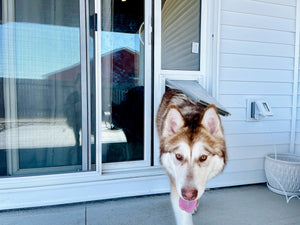Can Dogs Take Human Painkillers
In short, the answer is no, dogs cannot take painkillers meant for people. Ibuprofen and other common household painkillers can be toxic to dogs and cats. Even a single 200-milligram dose of ibuprofen can be poisonous for pets, leading to rapid kidney and stomach damage.

Why Human Painkillers Dangerous for Dogs:
Naturally, we want to help our dogs when they are in pain. But it is always important to consult your veterinarian before treating your dog with any medication, particularly those intended for people. Human painkillers are not safe for your dog unless specifically discussed with your vet.
Nonsteroidal anti-inflammatory drugs (NSAIDs), such as Advil (ibuprofen) and Aspirin, help reduce inflammation in people. Tylenol (acetaminophen) is not an NSAID but is another commonly used painkiller for people. So, can any of these be given to dogs?
Advil: No safe dosage for dogs. Never give your dog ibuprofen to treat pain.
Aspirin: If given at a vet-recommended dose for a few days can be safe but it is not very effective.
Tylenol: Also can be safe in small doses recommended by your vet, but will not be very effective.
So, why are NSAIDs dangerous for dogs? Dogs don’t metabolize medications in the same way that people do. A safe dose for humans may cause severe liver and kidney damage or failure in dogs.
Ibuprofen damages the stomach, intestines, and kidneys, as well as the central nervous system and platelets. It is very important to keep Advil away from all pets in the household.
NSAIDs, even those specifically made for dogs, can also cause GI bleeding and ulcers. Even those that can be safe at low doses should never be given without veterinary supervision.
Precautions to Take in the Home:
It is extremely important to keep all medications safely locked away from pets in the house. Here are a few steps you can take to safely store medications when you have pets:
- Keep all NSAIDs and other medications in one cabinet that is closed and high enough up to be out of reach for dogs and cats.
- Make sure the child-safety lock is working on all bottles and engaged after every human use of medication.
- Properly dispose of unused medications in a way that your pet cannot get to them.
- Keep medications in their original packaging for reference if needed.
- Store pet medications separately from human medications to prevent an accidental mix-up.

Signs of a Toxic Reaction to Painkillers in Dogs:
If you suspect your dog got into the medicine cabinet, it’s important to look out for symptoms of toxicity. Here are the signs of NSAID poisoning in dogs:
- Weakness
- Vomiting
- Vomiting blood
- Diarrhea
- Lethargy
- Not eating
- Black, tarry stool
- Dehydration
- Bad breath
If you notice any of these symptoms, take your dog to emergency veterinary care right away. You can also call the ASPCA Animal Poison Control Center if you think your dog may have gotten into your medications.
If your dog is in pain, the best thing to do is to take them to the vet. That way they can be prescribed dog-safe painkillers under trained medical supervision.
Interested in what food your dog should be eating? Check out the best pet food for your dog.




